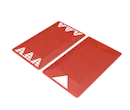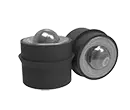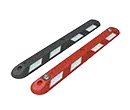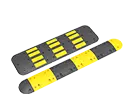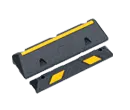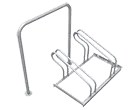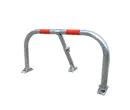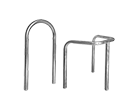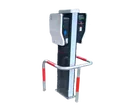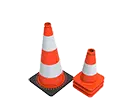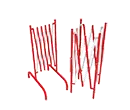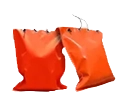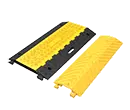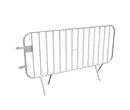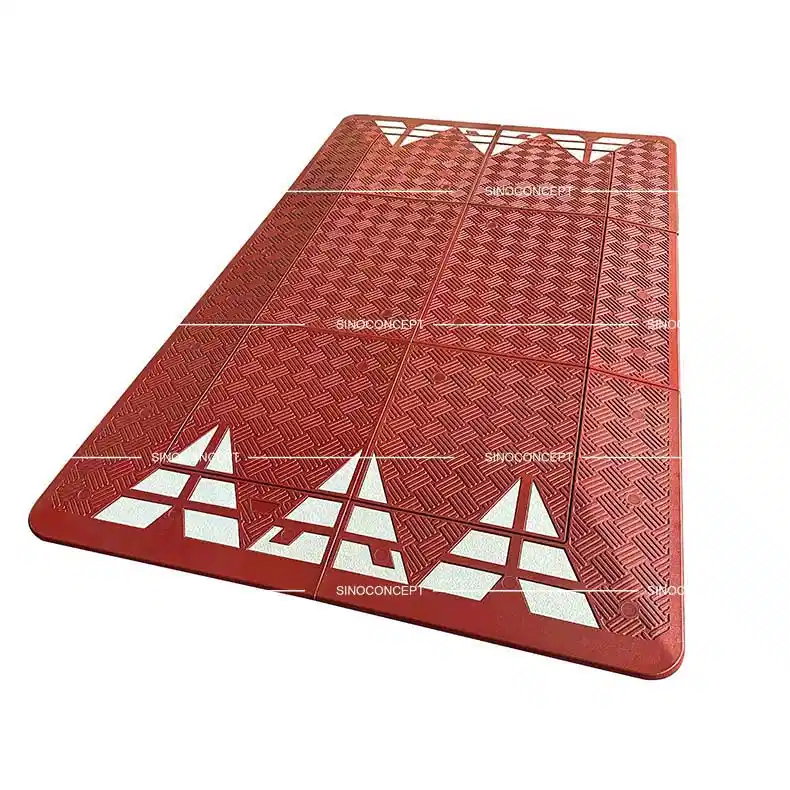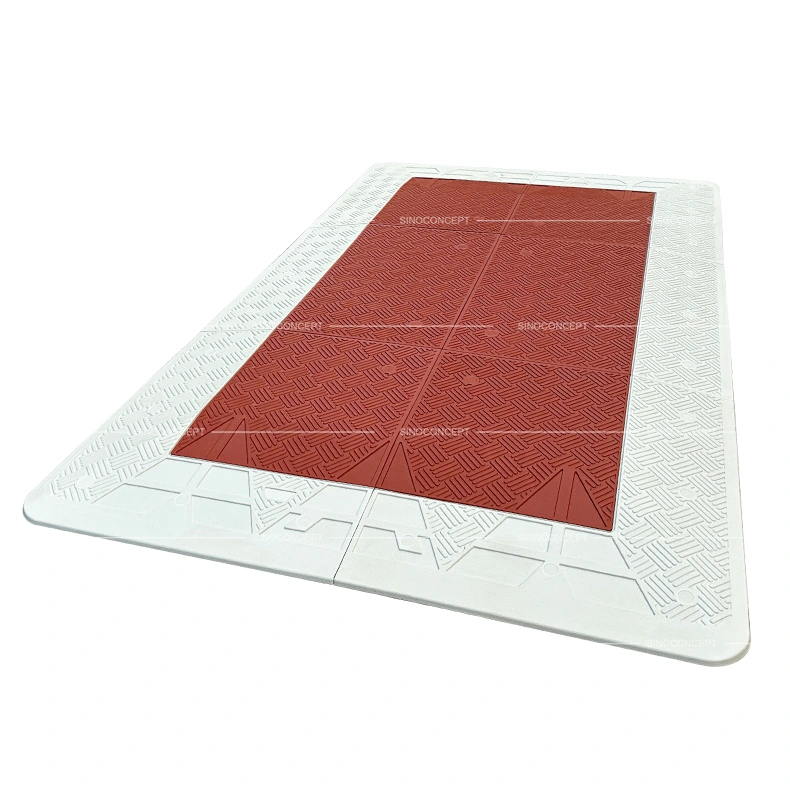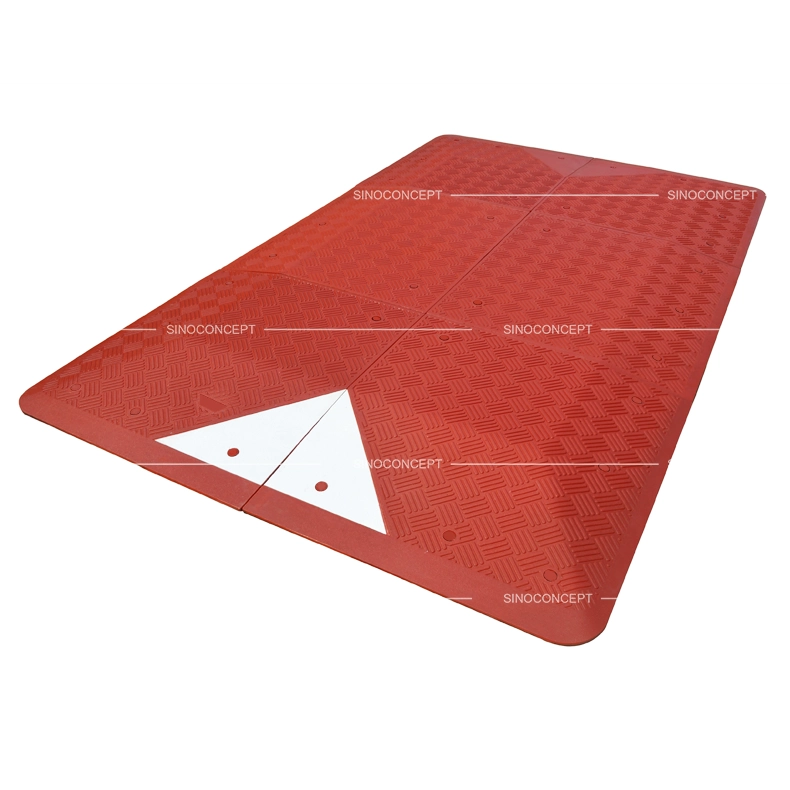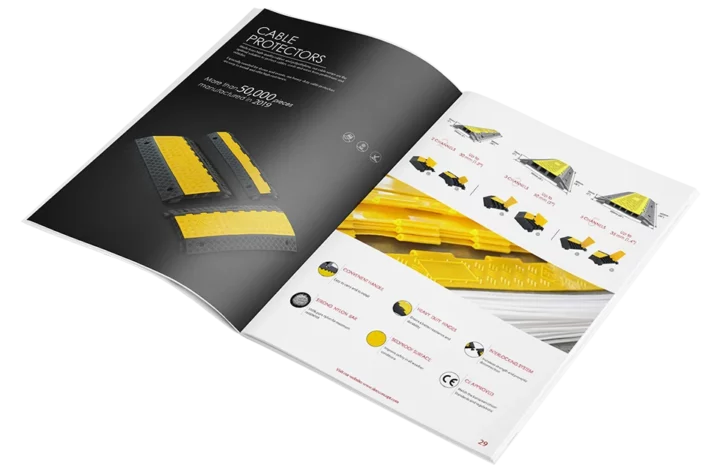Speed cushions and speed tables
Our plastic-rubber speed cushions and speed tables are designed to reduce vehicle speeds and improve safety on public roads. As road-safety devices that comply with REACH compliant, they are ideal for country roads and urban roads, helping control traffic flow in a reliable and cost-effective way.
-
Speed Cushion Europe
$373.10 – $495.60 -
Speed Cushion Belgium
$348.50 – $471.00 -
Speed Cushion UK
$434.80 – $667.50
| Picture | Model | Material | Benefits | Ideal For |
|---|---|---|---|---|
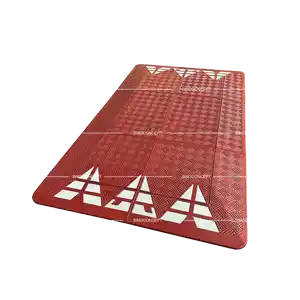
|
Speed Cushion Europe | Durable plastic-rubber composite | Suitable for most countries in Europe. | Used across Europe, ideal for city streets. |
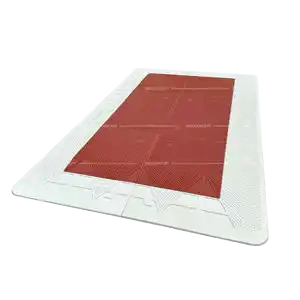
|
Speed Cushion Belgium | Robust plastic-rubber composite | White border for high visibility, follows Belgian standards. | Belgian roads, crossings and public streets. |
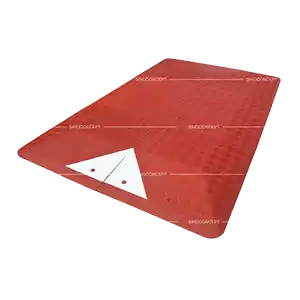
|
Speed Cushion UK | Eco-friendly rubber material | Department for Transport (DfT) approved for public roads in the UK. | Designed for UK roads, ideal for urban roads. |
What Are Speed Cushions
Speed cushions, also known as speed tables, speed pillows, or speed bump pillows, are traffic calming devices designed to slow down traffic.
Made from materials like plastic-rubber composites, rubber, concrete, and asphalt, they are slightly raised in the centre to reduce speed without causing discomfort.
Unlike traditional speed bumps, traffic cushions allow larger vehicles, such as fire trucks and buses, to pass through gaps without slowing down.
Popular brands like Rediweld, Marshalls or Sino Concept offer reliable, durable rubber speed cushions that comply with local regulations in various countries.
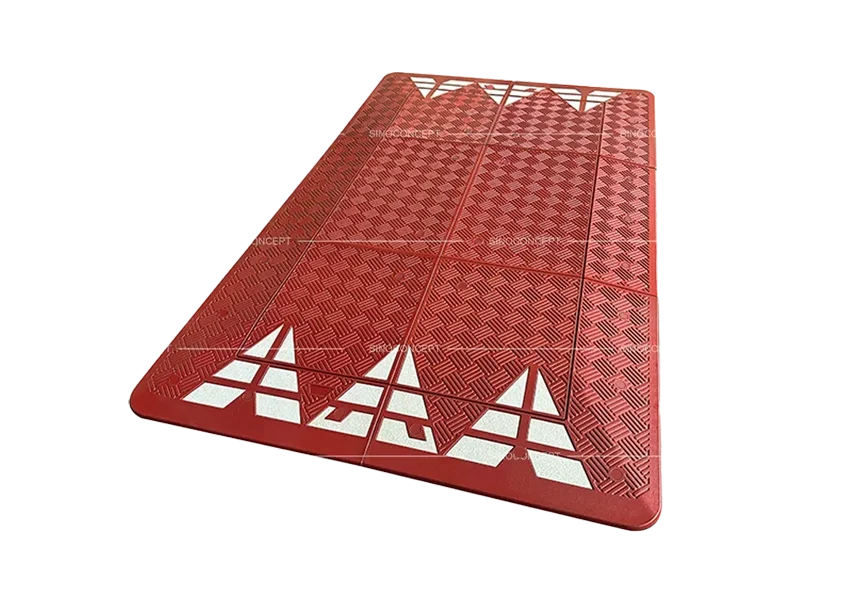
European Standard-Compliant Road Cushion For Public Road safety
Our road cushions are made from durable plastic-rubber composite materials that comply with European standards, featuring an effective speed cushion design that makes them ideal for routes with regular public transport, busy car parks, or streets where low noise is as important as low vehicle speeds.
They comply with European rubber speed cushions regulations, effectively reducing speed, preventing accidents, and improving safety.
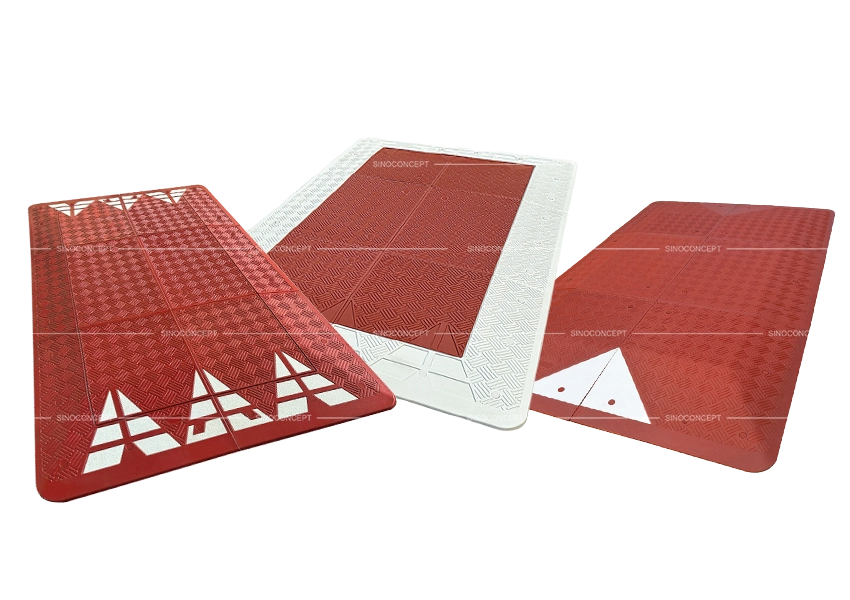
Emergency-Friendly Geometry
The pad is slightly wider than the track width of regular cars, forcing them to slow down as they cross. Suitable for Emergency vehicles and buses from bus companies, they can pass through and don’t need to slow down.
Example: Fire trucks and ambulances
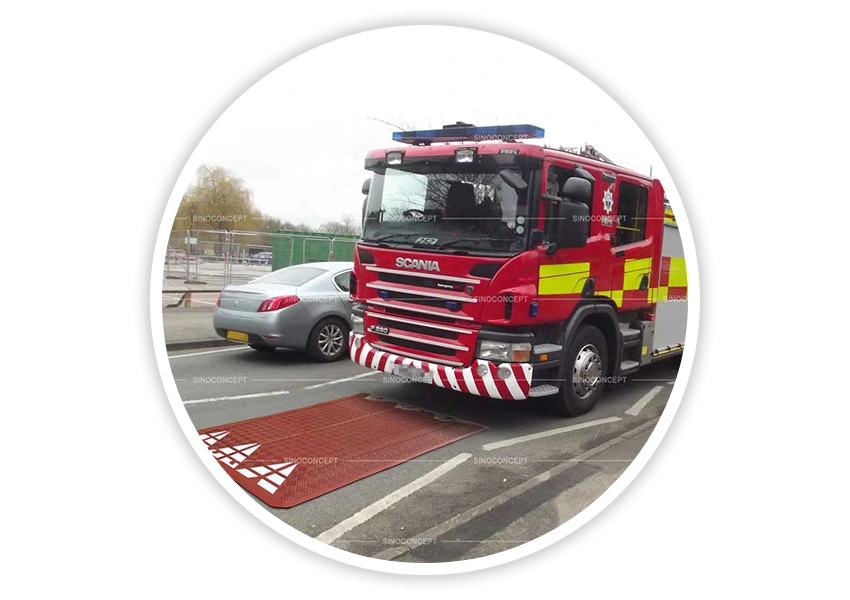
Our Traffic Calming Cushions: Smart Design, Strong Performance
Discover what makes our bolt down speed cushions a reliable choice for traffic-calming on public roads, see the key benefits below to see how they can secure street furniture.
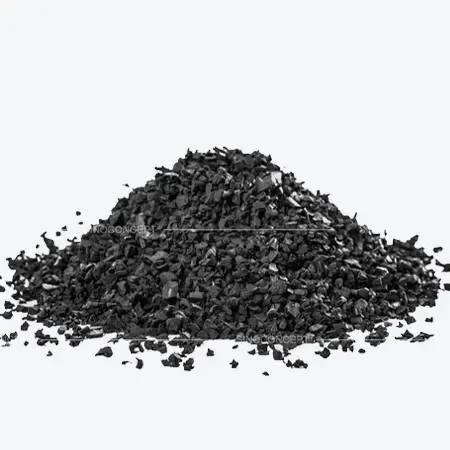
Durable & Eco-Friendly
Sino Concept speed cushions are made from a strong, cost-effective, UV-resistant plastic-rubber composite that withstand harsh weather and heavy traffic while keeping the environmental footprint low.
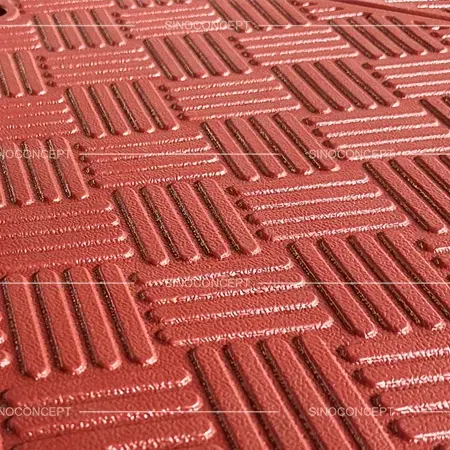
Skid-Proof Surface
The moulded anti-slip surface of our speed pillows improves tyre grip and helps drivers reduce stopping distance on inclines or other areas where slower speeds are needed.
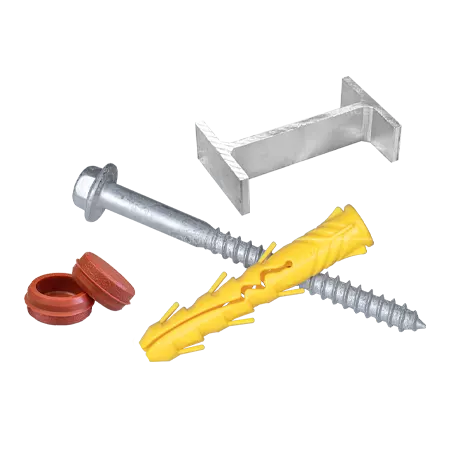
Easy Installation
Each plywood crate contains all necessary accessories for speed cushion installation, allowing two people to install it quickly and with minimal disruption to residents, shops, and passing traffic.
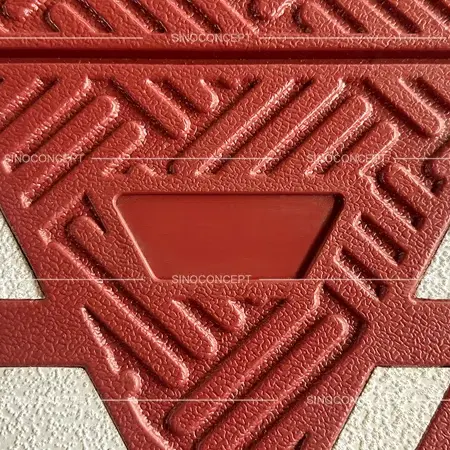
Custom Branding
Logo can be moulded straight into the speed cushion surface. Our black version is also available when you want a discreet, neutral look.
Three Versions, One Goal: Traffic-Calming for Public Transport
Each region has specific standards for speed cushion dimensions, such as those in the UK and Australia. We offer three main versions, each designed to meet these regional requirements.
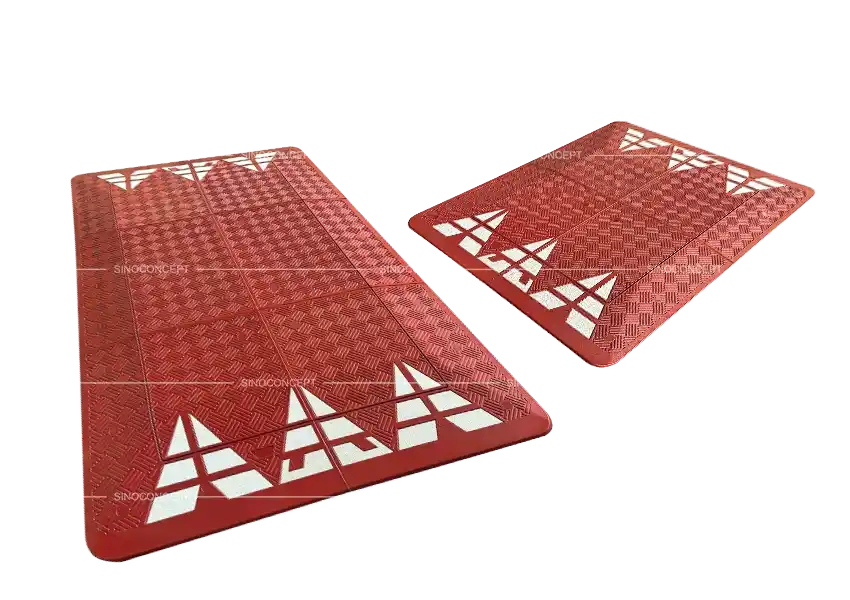
Speed Cushions Europe
Compliant with European standards, our cushions feature embedded white thermoplastic reflective films for day-and-night visibility.
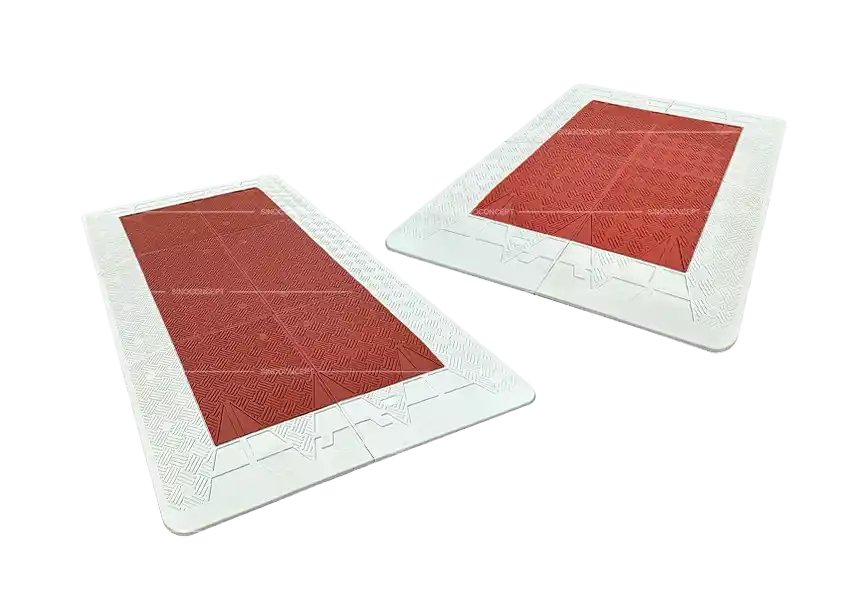
Speed Cushions Belgium
Our traffic control devices are manufactured according to Belgium traffic regulations, each unit shows a bold white border around a red or black centre.
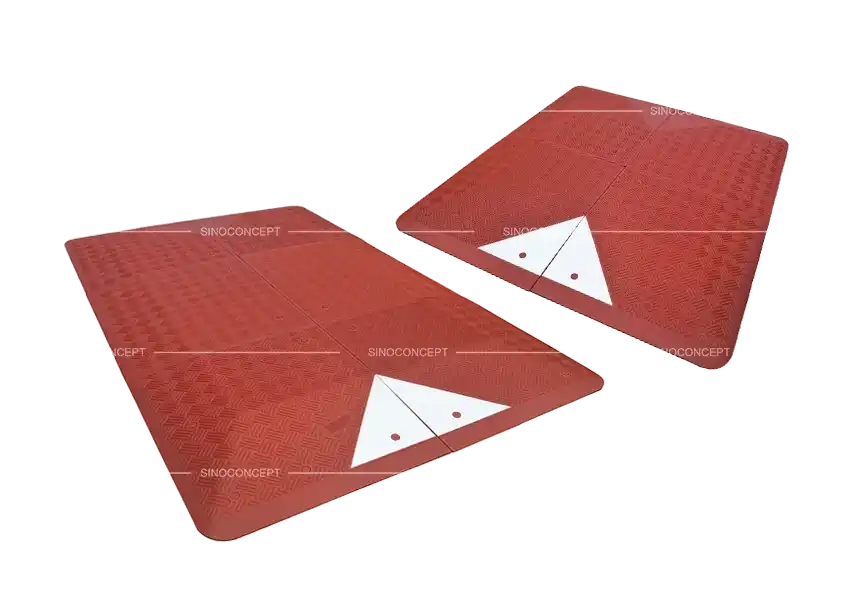
Rubber Speed Cushions UK
Made from recycled materials, engineered to UK Department for Transport guidance, our rubber speed cushions keep within the network rules on size and spacing. Bright white thermoplastic films make each road cushion easy to spot day or night.
All three designs come in 4-part (2 m) and 6-part (3 m) modular builds, arrive pre-drilled for quick bolt-down on asphalt or concrete, and are fully REACH compliant, offering long-lasting performance and making them ideal for 20 mph (30 km/h) zones.
Where Our Traffic Cushions Work Best
Sino Concept’s traffic cushions are designed to support a wide range of traffic-calming projects on public roads:
- Residential areas with 20 mph (30km/h) speed limits
- Hospital roads used by both emergency services and daily traffic
- Energy Car parks and travel drive areas needing safe, low-noise speed control
Our surface mounted traffic cushions are ideal for projects that demand reliable speed reduction to traffic flow.
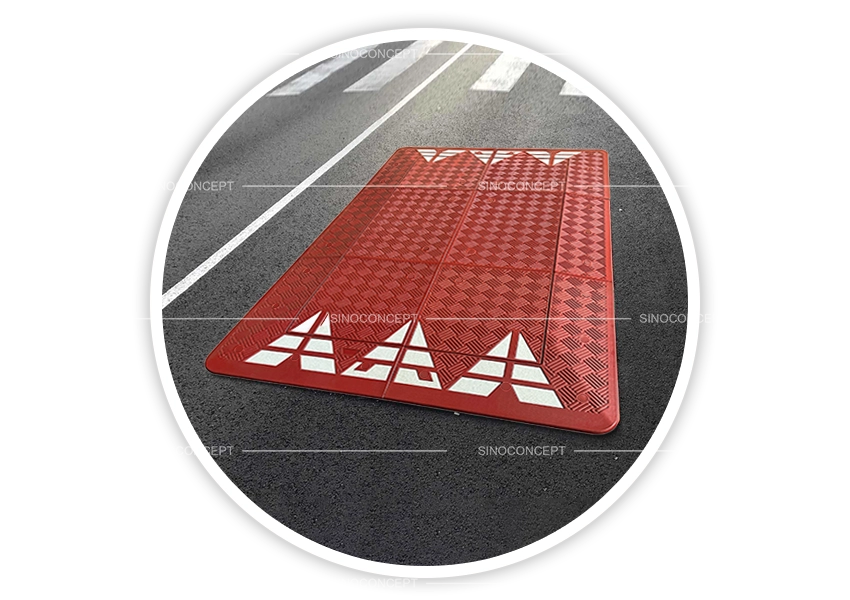
Why Choose Sino Concept for Your Speed Traffic Calming Device
Sino Concept is your trusted source for reliable, cost-effective traffic safety products. Here’s why wholesalers choose us:
- Factory-Direct Pricing: Benefit from competitive prices with no middlemen
- Proven Quality: Our products are made with durable materials that withstand heavy traffic and harsh weather, offering long-lasting road safety
- Efficient Production and Delivery: We ensure timely production and fast delivery to meet your project deadlines and customer needs
- Expert Support: Our team provides product expertise and guidance to help you select the right solutions for your projects
With Sino Concept, your business remains strong, and your reputation is built on quality. Partner with us today to grow your business.
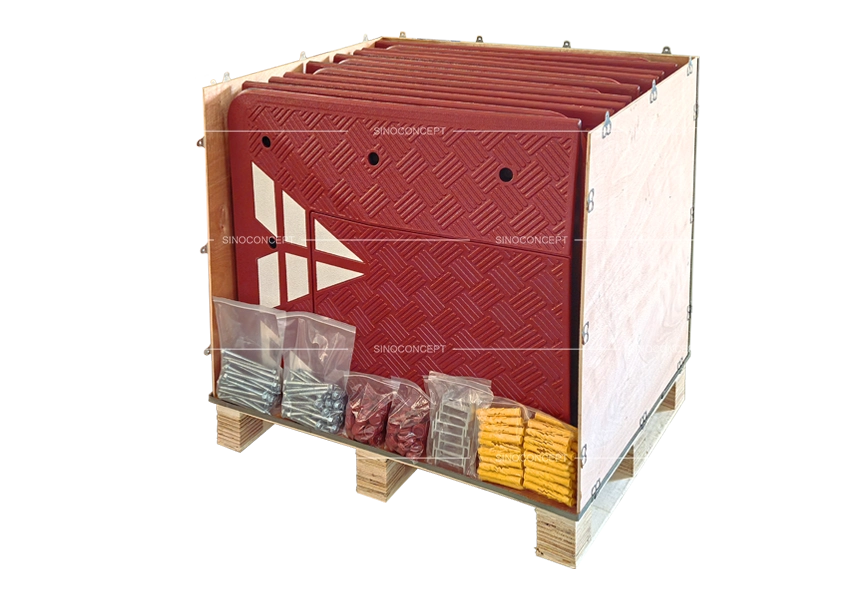
Expand Your Range of Traffic Calming Devices
To enhance your road safety product range stock, we also offer complementary products that require minimal maintenance and easy installation.
| Picture | Range | Ideal For |
|---|---|---|
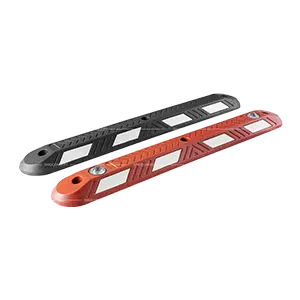 |
Cycle Lane Dividers | Durable plastic-rubber blocks, easily bolted down, provide clear and effective separation for bike lanes. |
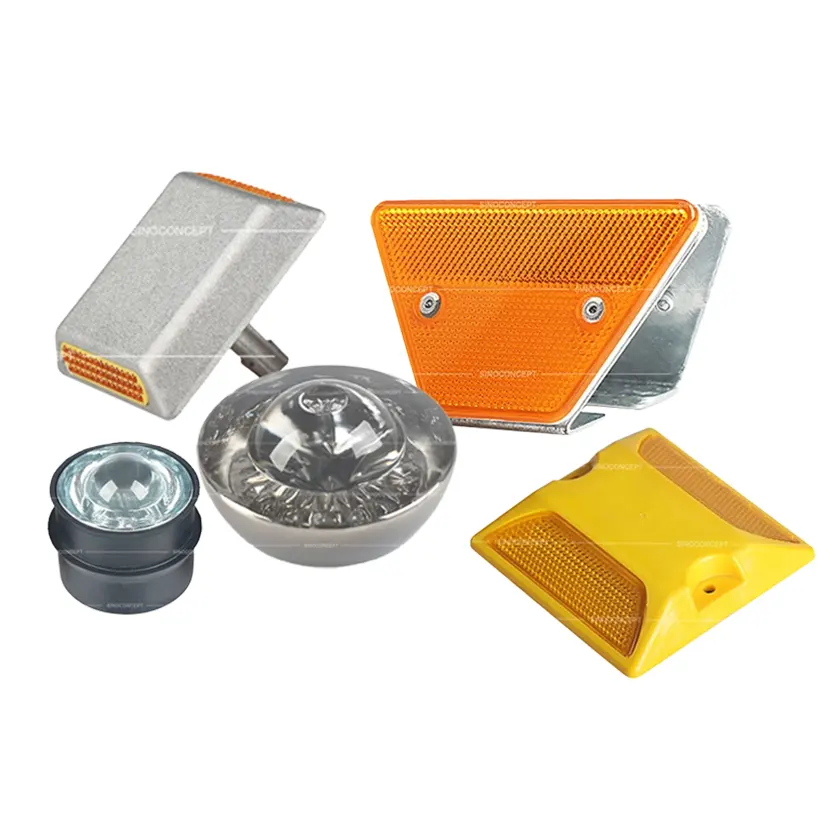 |
Reflective Road Studs | Flat markers with bright lenses that stay visible in rain, fog and dark nights, keeping lane lines clear. |
They each meet a distinct safety need and share Sino Concept’s in-house design, consistent quality, factory-direct pricing, and reliable traffic-calming measures.
Smooth the Ride with Effective Traffic-Calming Solutions
Boost your road safety product range with our speed tables for sale. Designed for high-traffic areas, they reduce the risk of collision for cyclists and pedestrians.
Reliable, easy to install, and ideal for wholesalers seeking durable, cost-effective solutions. We are ready to supply bulk orders.
Contact us for bulk orders today! Our sales team will reply to your email within a few hours!

